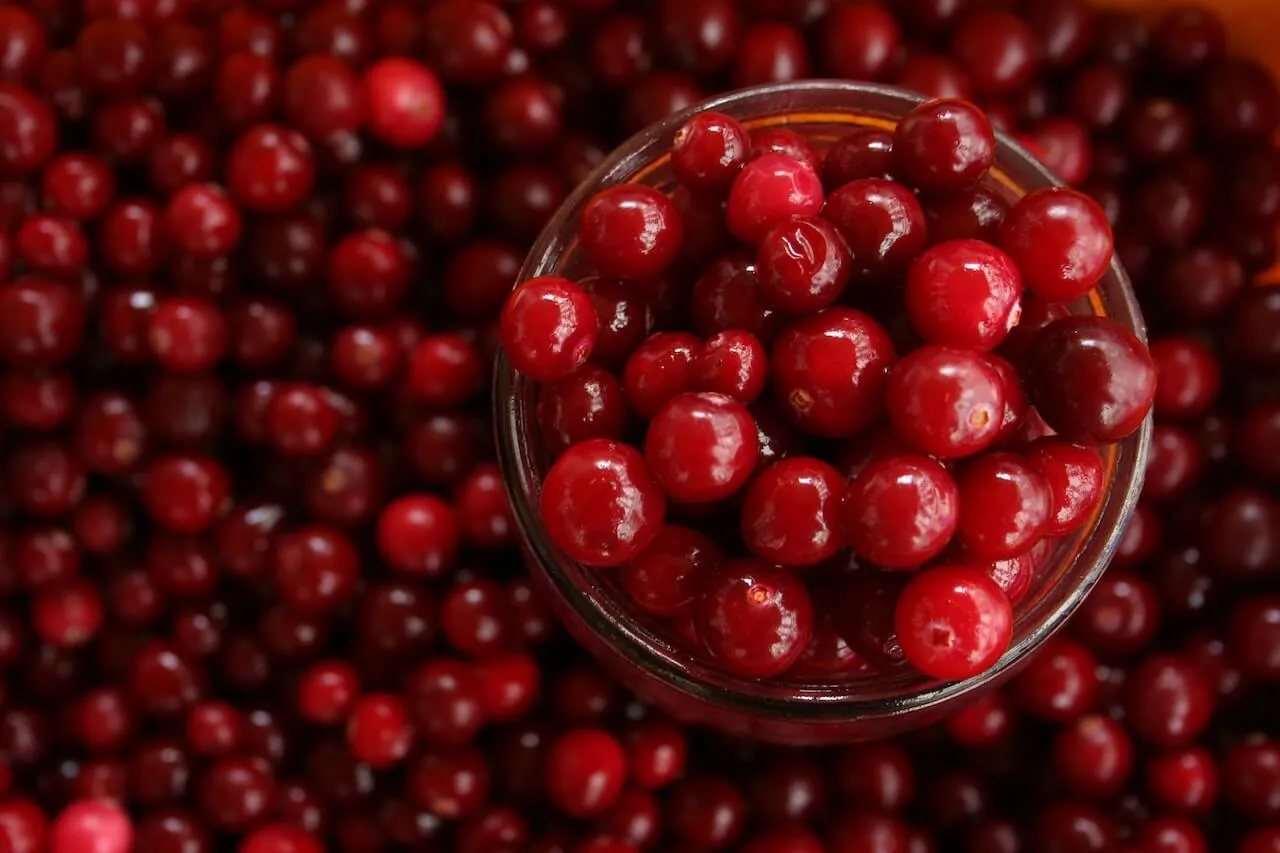When life gives you lemons, squeeze them and skip the sugar. Pure lemon juice is a natural source of vitamin C and contains acids and other compounds that may have health benefits.
If you're considering starting your day with a glass of lemon water, here's everything you need to know about lemon juice's health benefits and potential downsides. Plus, find smart ways to incorporate lemon juice into your wellness routine.
{{mid-cta}}
Lemon Juice Nutrition Facts

Lemons are one of the lowest-calorie fruits — about 93 percent of lemon juice is water. While very minimal, most of the calories in lemon juice come from natural sugars. Lemon juice is a great source of vitamin C, which is responsible for most of the fruit's health benefits.
According to the USDA, a half cup of fresh lemon juice contains1
- 27 calories
- 0.29g of total fat
- 1.2mg of sodium
- 8.4g of carbohydrates (0.37 g fiber, 3.1g sugar)
- 0.43g of protein
- 47.2mg of vitamin C (52% Daily Value)
- 125.7mg of potassium (3% DV)
- 7.3mg of calcium (1% DV)
7 Health Benefits of Lemon Juice
Lemon juice isn’t just a zesty add-in for meals and drinks—it also offers a range of health benefits. Rich in vitamin C and antioxidants, it can support the immune system, promote healthy digestion, and even contribute to better skin. Here are the key health benefits of drinking lemon water:
1. It’s High in Vitamin C and Antioxidants
One of the standout health benefits of lemon juice is its high vitamin C content. Just a small amount of lemon juice can provide a significant portion of your daily vitamin C needs—a half cup provides 47.2 mg of vitamin C, 52% of your daily dietary needs.
Lemons (and other citrus fruits) are a great source of other antioxidants, including polyphenols and flavonoids. Research shows that antioxidants can help reduce oxidative stress and inflammation that results.2
<div class="pro-tip"><strong>Also Read: </strong><a href=vitamin-c-and-glucose-monitoring>Vitamin C Effects on Blood Sugar Readings Overview</a></a>.</div>
2. It May Help With Digestion
There is little research on lemon juice's benefits for digestion; however, the limited research suggests that the juice can help keep things moving smoothly.
One small study found that compared to water, lemon juice increased the amount of gastric contents by 1.5 times 30 minutes after a meal and sped up gastric emptying by 1.5 times. So people drinking lemon juice were better able to relieve themselves after a meal.3
3. It Might Help Prevent Kidney Stones
Lemons are an excellent source of citric acid or citrate, a natural acid that can help prevent kidney stones.
Citric acid is absorbed in the intestine and helps alkalize the urine, making it less acidic. Kidney stones can form when the urine has a high acid content, so alkalizing it can prevent kidney stones.4
That's why the National Kidney Foundation recommends mixing 4 ounces of lemon juice concentrate with water to help treat or prevent stones.5
4. It Might Help Balance Blood Sugar
Drinking lemon juice might also help lower your glycemic response to meals. A study of ten people found that blood glucose concentrations were 35% lower after a meal than those who drank water.
Another study looked at how lemon juice affects people's glycemic response after eating bread, and the results showed that lemon juice reduced the blood sugar rise by 30% and delayed the spike by about 35 minutes.6
This suggests lemon water could be a suitable calorie-free drink for people with diabetes.
5. It Supports Skin Health
Lemons and their juice are chock-full of vitamin C, a nutrient essential for good skin. Vitamin C supports collagen production, which keeps skin firm and youthful. Research has shown that people with more vitamin C in their diets had fewer wrinkles. Vitamin C's antioxidant properties protect against free radicals and damage from UV rays and pollution.7
6. It Can Kill Bacteria
Lemon juice is acidic, so it makes sense that it's often used as an antiseptic. Research shows that lemon juice can inhibit many types of bacteria that can cause us to get sick. Lemon juice is most effective at killing shigella, followed by staph, citrobacter, and salmonella.8
While we can't guarantee squeezing lemon over your meal can prevent foodborne illness, doing so can't hurt.
7. It Might Help Lower Blood Pressure
While the research isn't super definitive, it does point to lemons helping reduce blood pressure.
One study found that people who consumed lemons and walked more throughout the day had lower systolic blood pressure (the top number in a blood pressure reading). The researchers suspect more physical activity and consuming lemon juice can improve blood pressure.9
Having healthy blood pressure levels can protect your cardiovascular health, too.
The Potential Downsides of Lemon Juice

While lemon juice is linked with health benefits, it’s not without drawbacks—especially if you drink too much. For some people, the acidity of lemon juice can cause or exacerbate certain health issues. So, it's important to understand these potential side effects before adding it to your daily diet.
- Too Much Citrus Can Weaken Your Dental Enamel
Enamel, the outer layer of your teeth, protects against tooth damage and decay. According to the Journal of the American Dental Association, citric acid, abundant in lemons, can erode that layer of enamel and leave your teeth susceptible to damage. Drinking through a straw or rinsing with water afterward can help mitigate this effect.10
- It Might Make Gerd Worse
People with gastroesophageal reflux disease (GERD) may find that lemon juice worsens gastrointestinal symptoms like heartburn and acid reflux. However, some people say that lemon juice helps heartburn, when taken in very small amounts mixed with water.
5 Ways to Add Lemon Juice To Your Everyday Diet
You can incorporate lemon juice into your daily diet in so many ways. You can cook with it, add it to beverages, or use it as a garnish for sweet and savory dishes. Here are a few easy ways to add lemon juice to your everyday diet:
- Drink It Diluted as Lemon Water
Start your day with a glass of warm or cold lemon water. Squeeze fresh lemon juice into plain water for a hydrating, vitamin C-rich drink to support digestion and energize you. Add one tablespoon of lemon juice to 8 ounces of water and drink it with a straw to help avoid tooth enamel damage.
- Add It to Smoothies
A splash of lemon juice can brighten the flavors in your morning smoothie while providing extra antioxidants. It pairs particularly well with greens, berries, and tropical fruits like pineapple and mango.
- Use It in Homemade Salad Dressing
Combine lemon juice with olive oil, garlic, and a pinch of salt for a simple, tangy salad dressing. This fresh alternative to store-bought dressings is both healthier and tastier.
- Use It as a Garnish
A squeeze of lemon juice is a beautiful final touch to a homemade meal. After ladling your soup or stew into a bowl, squeeze a little lemon juice over it. The lemon juice will add brightness and balance out rich or creamy flavors. You can also drizzle lemon juice over grilled vegetables, fish, or chicken for a burst of flavor. The acidity complements smoky, savory notes nicely.
- Add It to Tea
Add a squeeze of lemon juice to hot tea for a soothing, vitamin-rich beverage. Lemon juice adds a refreshing tang to herbal teas like ginger, chamomile, or mint. To use the whole lemon, try grating the peel into hot water.
Learn More About How to Improve Blood Sugar Health With Signos’ Expert Advice
Choosing the right medication (with your doctor's help) can improve your health, manage diabetes, and aid in weight loss. However, making certain lifestyle changes can also help. Changing your diet can be one of the most challenging endeavors, and that's where a continuous glucose monitor (CGM) can help.
A CGM keeps track of your blood sugar levels throughout the day and gives insight into what affects your blood glucose levels the most; that way, you can add or remove certain foods based on what's working for you. To learn more about blood sugar-related medical conditions and maintaining a healthy lifestyle, check out Signos’ blog.
<div class="pro-tip"><strong>Learn More: </strong><a href=benefits-of-lemon-ginger-tea>9 Benefits of Lemon Ginger Tea</a>.</div>




.svg)










.svg)
.svg)
.svg)
.svg)
.svg)
.svg)
.svg)
